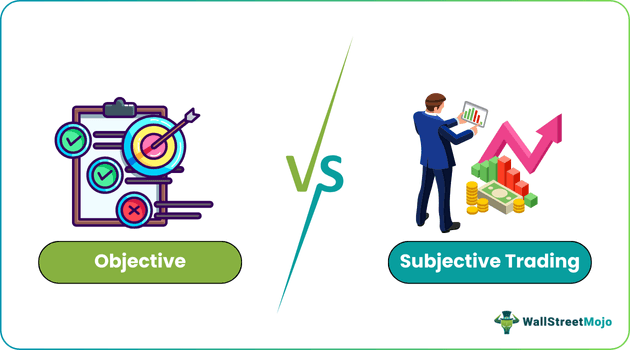Subjective trading is an intuitive form of trading where traders follow general guidelines and believe more in their instincts, feelings, experience, judgment, and opinions when making decisions related to entry and exit in the market. The subjective traders actively follow business news on daily bulletins and social media to anticipate stock price changes. Thus, positive news about a company is seen as an opportunity to enter the market due to greed, while negative news may influence them to exit out of fear and possible risk.
However, the stock prices sometimes show a certain movement due to pullbacks and market corrections, which such traders often miss, and thus, they incur losses instead of booking profits. Moreover, many are always confused about their position and make the wrong decision due to over-excitement or underestimating the situation.
Sometimes, the price movements in the market are driven by the traders' interpretation based on specific news, which is missed during objective trading. However, it requires high-level expertise and involves overnight risk where things may not go as the trader plans, and the scenario may change overnight when the news is released after the market closes.


